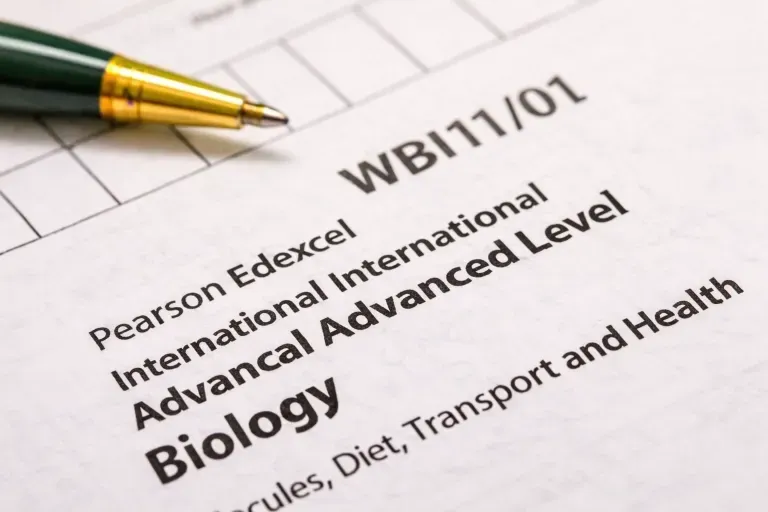Should you recheck, remark or retake your IGCSE exam?
Do not retake your IGCSE in 2025 until you read this
Results day can feel a bit like standing at a busy crossroads: plenty of traffic, lots of noise, and you’re trying to choose the right lane before the lights change. If your grade is a smidge below what you hoped (or needed), you’ll be weighing three options: recheck, remark, or retake. Each has its place. The trick is matching the option to your situation, rather than choosing the one that simply feels comforting in the moment.
This guide lays out what each route involves, when it’s sensible, and the trade-offs. I’ll keep it practical, straightforward, and—where helpful—slightly conversational. Because this is stressful enough without jargon.
The Three Options at a Glance
A quick orientation:
- Recheck: a clerical review to confirm every question was marked and marks were added correctly. No one re-judges your answers.
- Remark: a different examiner fully re-marks your paper. More subjective subjects (literature, history) tend to see more movement than, say, multiple-choice science.
- Retake: you sit the exam again in a future session. Bigger commitment, bigger potential upside.
Option 1: Recheck (Clerical Recheck)
What actually happens
A recheck is administrative. Cambridge (via your centre) verifies:
• Every question was marked.
• The marks were totalled correctly.
• Nothing was missed during recording.
No re-marking of your responses—this is arithmetic and completeness, not interpretation.
When it’s worth it
- You’re one or two marks below the next grade boundary. Think: just shy of an A, or right on the cusp of a C.
- You (or your teacher) suspect a simple addition or recording error.
If you’re five, six, ten marks off, a recheck is unlikely to shift the grade. Not impossible, but improbable.
Cost, timing, and likelihood
- Typically cheaper than a remark.
- Turnaround is usually quicker—often a few weeks to a couple of months.
- Grade changes happen, but large jumps are rare. It helps when there’s a genuine clerical slip.
Practical steps (without faff)
- Check the published grade thresholds for your series.
- Speak to your teacher or exams officer; they’ll have a good feel for whether it’s worth it.
- Submit via your school/centre before the deadline (they’re strict—no wiggle room).
Option 2: Remark (Enquiry on Results)
What actually happens
Your script is re-marked by a different examiner. This can be especially relevant for essay-based, analytical, or extended-response components, where examiner judgement matters.
When it’s worth it
- You’re confident your work was under-marked—perhaps your teacher’s feedback, your mock performance, or your own review of the mark scheme suggests so.
- You’re very close to a boundary and a small uplift would be meaningful (entry requirements, scholarship thresholds, that sort of thing).
Cost, timing, and risks
- More expensive than a recheck; turnaround can be several weeks.
- If your grade changes, fees are often refunded (always check the current policy).
- Your grade can go up, down, or stay the same. Do weigh that risk with clear eyes, especially if you’re comfortably meeting a requirement already.
Smart process, fewer regrets
- Review the relevant mark scheme and examiner’s expectations with a teacher who knows your work.
- Prioritise components where professional judgement plays a bigger role (essays, longer responses).
- Submit through your centre, keep an eye on timelines, and be patient—it can feel slow, but it’s moving.
Option 3: Retake
What actually happens
You re-enter the subject for a future exam session (often the next available one, though do check how it fits with school commitments and applications).
When it’s worth it
- The subject is critical for your next step (university course, sixth form programme, apprenticeship requirements).
- You can genuinely improve with focused preparation and time. If you didn’t get to grips with the syllabus the first time round—life happens—a retake can be a proper reset.
Preparation, admin, and outcomes
- Build a targeted study plan: identify weak areas (topics, question types), schedule regular practice papers, and get feedback (not just marks).
- Coursework or certain components may be eligible for carry-forward—check the specific syllabus rules via your centre.
- Register before the deadline and ensure your entry is marked as a retake to avoid needless fees.
- The new result typically replaces the old one for most official purposes (handy, that).
How to Decide: A Practical Framework
Step 1: Check proximity to the boundary
Within 1–2 marks? A recheck or a remark may be sufficient. Further away? You may need a retake to see meaningful movement.
Step 2: Consider subject type and confidence
Essay-heavy or interpretive subjects lend themselves to remarks if you’ve strong reasons. Objective-heavy papers (MCQs, short structured answers) tend to be less responsive to remarks—unless there were marking oversights.
Step 3: Weigh importance and timing
Is this grade pivotal for your next step? If yes, and you’ve time to improve, a retake might be the most strategic choice.
Step 4: Balance cost against benefit
Rechecks/remarks cost less time but carry uncertainty. Retakes demand more effort and fees, but offer greater potential improvement.
Step 5: Consult your teachers
A short, frank chat with someone who knows the mark schemes and your performance can save you time and money (and stress).
Scenario-Based Pointers
One mark below an A in an essay subject
Consider a remark—especially with teacher backing. If budget is tight, a recheck is a lower-cost first step, though the remark is more likely to capture judgement-based changes.
Two marks below a C in a structured science
Start with a recheck. A remark might be warranted only if your teacher spots likely under-marking in extended responses.
Several grades below expectations and the subject is critical
Plan a retake with a targeted revision programme. Build in regular mocks, timed practice, and iterative feedback.
Happy enough with the grade but eyeing a scholarship boost
Only retake if the benefit clearly outweighs the time and pressure. There’s no shame in banking a solid result and moving on.
Timelines, Costs, and Risks at a Glance
Recheck
• Lower fee, quicker turnaround.
• Low risk, low impact—unless a clerical error is found.
Remark
• Higher fee, several weeks to process.
• Outcome can improve, worsen, or stay the same.
Retake
• Highest time and effort, plus exam fees.
• Biggest potential improvement with a proper study plan.
A Short Action Checklist
Within 48 hours of results
• Download your Statement of Results and grade boundaries.
• Book a quick chat with your teacher or exams officer.
Within the first week
• Decide on recheck/remark and submit before the deadline.
• If leaning toward a retake, confirm any carry-forward options and map out your study plan.
Within two weeks
- If retaking, register before fees increase.
- Gather your candidate and centre numbers and keep your documentation tidy (future-you will be grateful).
Common Pitfalls (and how to dodge them)
Missing deadlines
Set reminders. Put them in your phone, your planner—everywhere. Deadlines in this world are not suggestions.
Assuming remarks can only help
They can go down as well as up. Make sure there’s a credible case before you proceed.
Skipping teacher input
You’re close to it emotionally; teachers can give the cooler-headed view.
Forgetting to mark your entry as a retake
It sounds tiny, but it matters. Double-check your forms before submission.
Final Thoughts
There isn’t a one-size-fits-all answer (if only). If you’re a mark or two off, a recheck or remark can be enough—especially where judgement calls matter. If the subject is crucial and you know you can improve with time and proper preparation, a retake can be a smart reset. Act promptly, lean on your teachers’ expertise, and choose the option that actually moves you toward your goal—rather than the one that simply soothes the nerves today.
And do remember: this is a step, not a verdict on your abilities. Plenty of excellent students have retaken, remarked, or rechecked and gone on just fine. You will too.
References and Further Reading
- Cambridge English Support — ‘Re-marking your exam: Enquiries on Results and Appeals’
- British Council (Pakistan) — ‘Exam retakes and remarking for IGCSE/GCSE’
- Cambridge International — ‘Retake entries: guidance for exams officers’
- YouTube — ‘Cambridge Results 2024 | RECHECK Or RETAKE’ (uploaded 16 August 2024)
- YouTube — ‘Should you do a remark or recheck for your IGCSE result’ (uploaded 16 August 2024)
Try a free Class
IGCSE and IAL Guide for 2025 - 2026 Exams
















